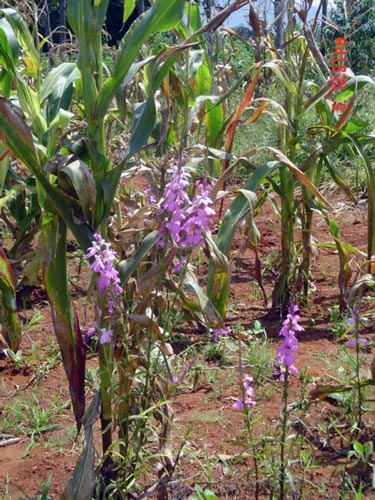By Brenna Goth/CIMMYT
A partnership launched on 3 February by the U.S. Agency for International Development (USAID) Feed the Future Partnering for Innovation and led by the African Agricultural Technology Foundation (AATF) will help CIMMYT and other partners to fight a parasitic plant affecting maize production.

The three-year, performancebased grant of US$ 3 million is the largest grant awarded by Feed the Future Partnering for Innovation to date, according to an AATF press release. Feed the Future Partnering for Innovation supports projects increasing the productivity of smallholder farmers while AATF promotes sustainable agricultural technology for smallholder farmers in Sub-Saharan Africa.
The funding will help improve maize production in east Africa by “upscaling the commercialization of StrigAwayTM – an herbicidetolerant seed and treatment that controls the infestation of Striga – a parasitic weed that often results in total crop loss and even abandonment of arable land,” the press release said. Striga – commonly known as witchweed – can cause 20 to 80 percent crop loss in maize and affects 1.4 million hectares in Kenya, Tanzania and Uganda, according to the release.
CIMMYT helped develop the StrigAwayTM technology package along with partners including the Weizmann Institute of Science in Israel. An herbicide-tolerant maize variety is coated with an herbicide that kills Striga when the seed is sown and sprouts.
Other partners, including the agrochemical company BASF and six local seed companies, will promote the project in the three target countries. The project aims to create 4,000 demonstration plots and sell 1,000 metric tons of seed to 20,000 smallholder farmers. Partners will also offer technical support on how to use the seed and launch campaigns and promotion of StrigAwayTM.
 Climate adaptation and mitigation
Climate adaptation and mitigation